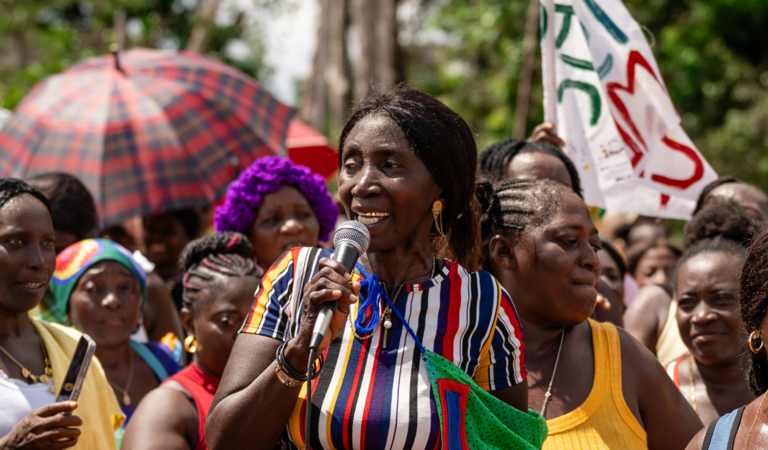- The government in Suriname announced an offering of the world’s first sovereign carbon credits through the UNFCCC Paris Agreement framework, allowing the country to issue and trade carbon credits with other countries and the private sector.
- But communities living in the forests that made the credits possible say the government rushed the process and didn’t take them into account, leaving many of them in the dark about how the program works and what the benefits are.
- Indigenous and Tribal peoples would receive just 10% of carbon credit revenue from the program, according to government documents reviewed by Mongabay. But the communities don’t understand how it will be distributed.
Local and Indigenous communities in Suriname are speaking out about a new carbon credit trading scheme that they say the government pushed through without consulting them. They’re worried they’ve been left out of forest conservation policies and revenue sharing tied to land that they have ancestral claims to.
The government in Suriname announced an offering of the world’s first sovereign carbon credits through the UNFCCC Paris Agreement framework, allowing the country to issue and trade carbon credits with other countries and the private sector. But communities living in the forests that made the credits possible say the government rushed the process and didn’t take them into account.
“The people who’ve really been caring for the forest and who need to be strengthened first and foremost are kind of a side note. They’re kind of an afterthought,” John Goedschalk, head of Climate Change Advisory Services, told Mongabay. “…The government put together this whole process and this whole system, and then they went to the communities and said, ‘Oh, by the way, this is it.’ I mean, that’s just wrong on so many levels.”
Carbon credits allow businesses and countries to offset their greenhouse gas emissions, in many cases by applying the credits to rainforests with high levels of biodiversity. Rainforest carbon credits in Suriname are meant to preserve the Amazon and cancel out other emissions abroad.
Suriname is covered by approximately 93% Amazon Rainforest and is one of the only countries in the world with net-negative carbon emissions, positioning it as a potential leader for the emerging carbon credit market. It’s the first country to offer these types of carbon credits — officially known as Internationally Transferred Mitigation Outcomes (ITMOs) — as laid out in the Paris Agreement.
The country’s ability to conserve so much forest cover is largely due to Indigenous and Afro-descendent peoples who have actively defended the rainforest from mining, agriculture and logging despite not having their land rights officially recognized by the government.
They say they were largely left out of the development of the new carbon credit program in the months leading up to its launch.


